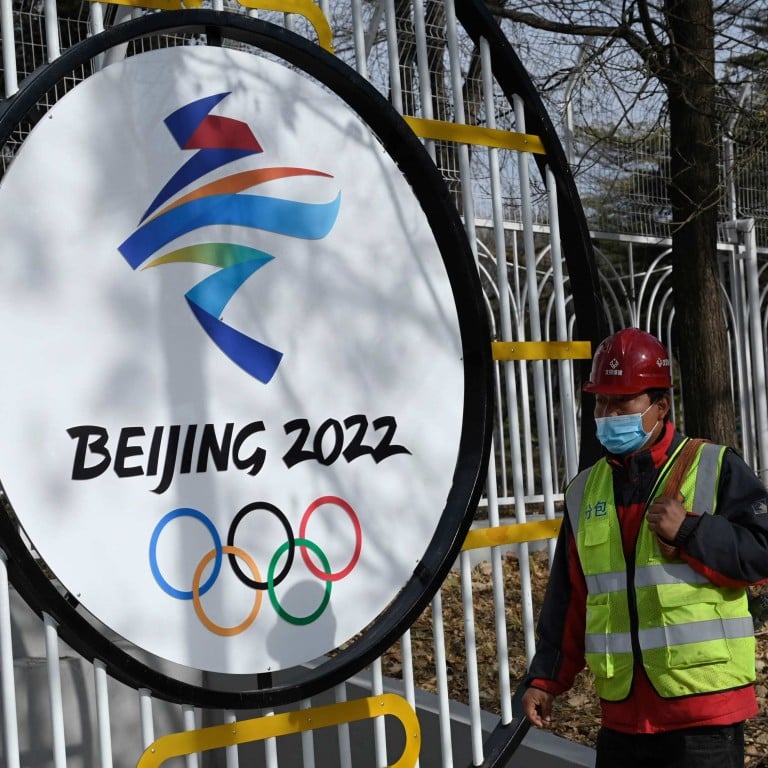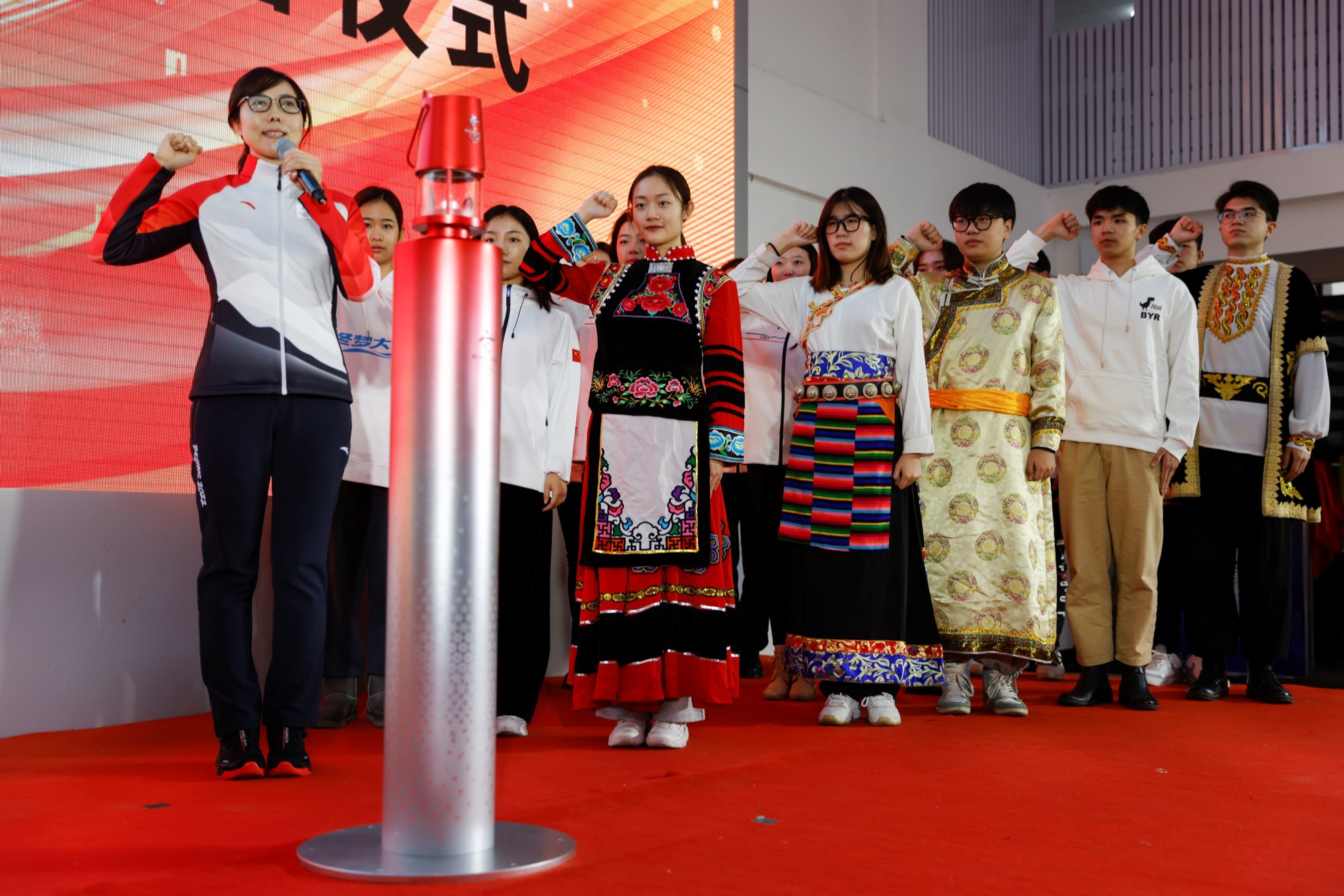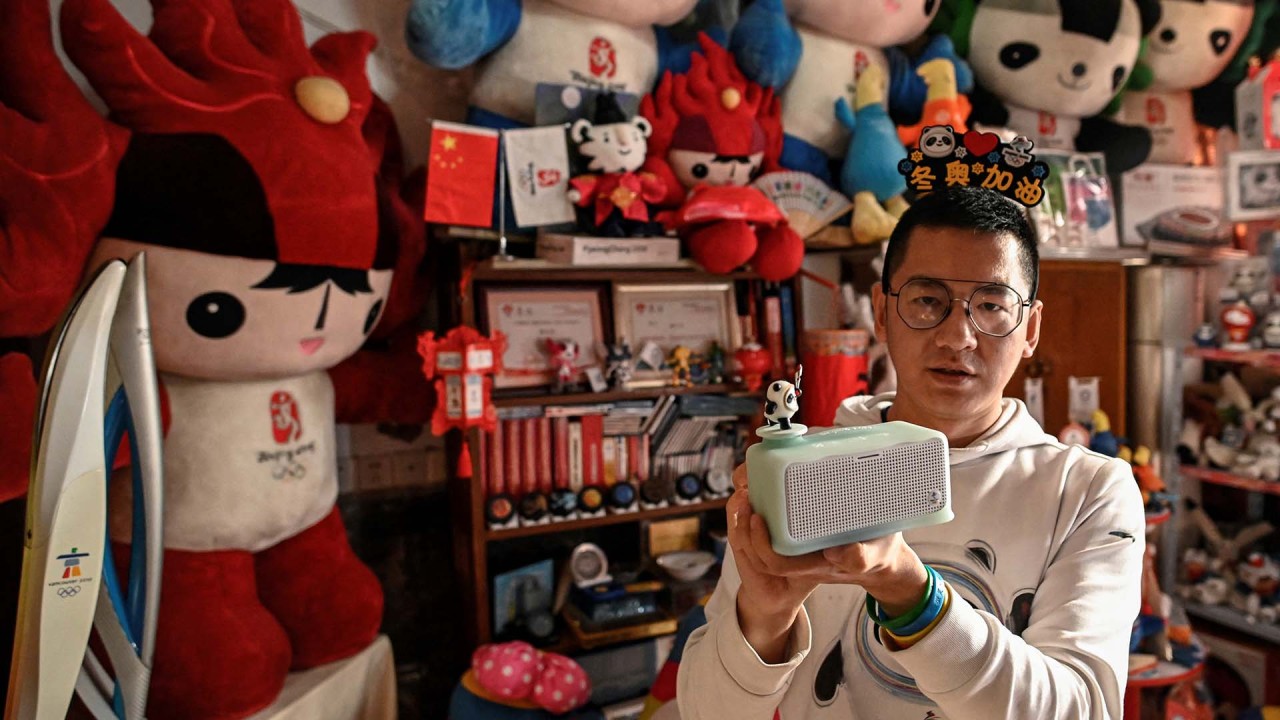
Olympic fever? Not in a Beijing where the shadow of Covid-19 deepens the winter chill
- The Games will be held amid tight coronavirus controls, while foreign visitors have been banned and it is not clear if ordinary Chinese will be allowed to attend
- Organisers have promised a ‘simple, safe and spectacular’ event, but residents in the capital are not confident they will get to see much of a spectacle
The Games, which begin on February 4, appear to have generated little public excitement within China and foreign spectators will not be allowed to attend the Games, which the organisers have promised will be “simple, safe and spectacular”.
The organisers have instituted far stricter Covid-19 containment measures than the Tokyo Games held last year.
Outside the bubble
The fear of an outbreak caused by the influx of visitors from countries that are dealing with surges in highly infectious Delta and Omicron variants have likely clouded excitement for the Games among Beijing residents.
“I’m not as excited as in 2008,” said Li Zeyan, referring to the year when the Chinese capital first hosted the Summer Olympics. “There won’t be so many events, and we are probably not allowed to be spectators.”
Organisers have yet to decide whether locals will be allowed to attend events and, if they are, numbers are likely to be limited.
While the Winter Games will feature a record 109 events, that number is only around a third of the number from 2008.
This poor Chinese city bet its fortunes on Winter Olympics. Then Covid-19 hit
Beijing will feature 109 events, the most of any Winter Games, but that is only about a third of the ones in 2008.
Li, 38, said her daughter had taken part in an official painting contest to mark the event and her 70-year-old mother had bought two commemorative coins, but said the Games had made little impact on her.
Jason Wang, a 42-year-old lawyer who lives near the Beijing National Stadium, said “it’s always good to be an eyewitness to a historic event” but complained he would be inconvenienced by the traffic restrictions put in place for the Games.
Since December 26, only cars and people connected to the Olympics have been allowed to use six roads around the stadium and other venues in the capital’s north.
A section of expressway between Beijing and Chongli, the location for most of the skiing events, was also closed to non-Olympics traffic on Tuesday, with more restrictions to come.
“I have to make a detour to my office in the central business district,” Wang said. “It adds at least 20 minutes to my daily commute and makes rush hours unbearably longer.”
Is China’s zero-Covid strategy up to the Omicron, Winter Olympics challenges?
He also said that his family had not been able to take their customary annual ski trip this year because of the preparations for the Games in Chongli.
Olympics Covid-19 bubble
Those foreigners who are allowed to attend – coaches and athletes, support staff, politicians and journalists – will stay in a bubble from the moment they arrive in China. As with last year’s delayed Summer Games in Tokyo, dedicated transport will be provided for them to travel from venues and their accommodation.
Outside the Olympic Village and venues, China’s zero-Covid policy, which tries to clamp down on any outbreaks with mass lockdowns and repeated testing, remains in force.

Zhao Wei, a public health professor at Southern Medical University in Guangzhou, said: “Even if there is a possible danger of an outbreak next week, it will not have much impact on the Winter Olympics.”
He said the Tokyo Games had not significantly worsened the situation in Japan and “China will handle it better than Japan. If a series of closed-loop measures are implemented strictly, there won’t be too much risk.”
Beijing’s Covid playbooks set out Winter Olympics rules for athletes
But a slow initial response to the Xian outbreak had been a “wake-up call” for the Olympics, he said, and local officials should act sooner and more proactively if the coronavirus does break out.
Boycott
Meanwhile, calls by activists and human rights groups for a boycott over human rights concerns might have dampened interest internationally, they have had limited impact inside China.
“Whether due to official censorship or not, domestically, Chinese people don’t seem to be following or very concerned about a boycott,” said Marcus Chu Pok, an assistant professor at Lingnan University in Hong Kong who studies Chinese sports and politics.
“At least there aren’t a lot of people following or commenting on a boycott on WeChat or other social media platforms.”
Will Putin be the first world leader Xi meets face-to-face in 2 years?
“It’s just a statement of that position, not a drastic measure,” Chu said.
Additional reporting by Guo Rui and Jane Cai



